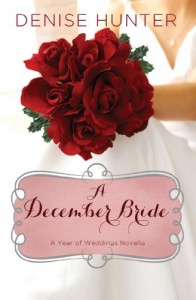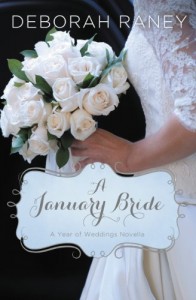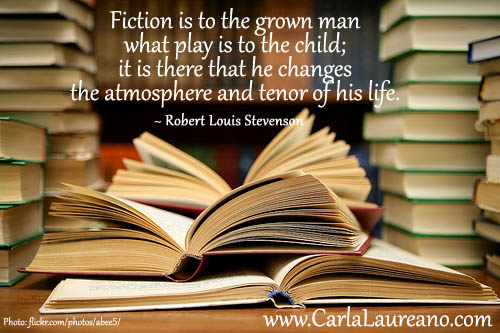Blog
Setting–and Reaching–Your Writing Goals

Welcome to the Monday Writers’ Workshop! For 2014, I’m trying out a different format for this Monday column. I’ll be choosing a different theme each month—and I’ve got a great schedule of guest posters lined up, including industry experts and some of my own favorite authors.
Appropriately, the theme for January is WRITING AND INSPIRATION – all posts aimed to helping you set and achieve your writing goals for 2014. Don’t forget to subscribe via the widget on the sidebar or your blog reader so you don’t miss any of the upcoming features!
—
Today we’re going to talk about setting goals in a way that makes them easy to visualize and easy to achieve. The mistake most writers make when setting goals is that they think too big. It’s wonderful to have big goals like “Become a New York Times Bestselling Author,” but these are more tools for vision casting and long term motivation. What you need now is specific, achievable goals that will help you get your butt in the chair every day and make measurable progress towards your dreams.
1. Make sure that your goals depend on your actions, and not someone else’s.
So much of the publishing business is out of our control. Yes, it takes talent, but also timing and luck. So make sure that whatever goals you set, you can achieve them through your own discipline and hard work.
Instead of: “Get a book contracted”
Try: “Write 500 words a day, six days a week.”
2. Break your goals down into manageable chunks.
Have you heard the old joke: “How do you eat an elephant?” Answer: “One bite at a time.” An author friend and I use the word “elephant” as a reminder to tackle big projects the same way. Breaking your goals into more easily achievable chunks not only will help give you a sense of accomplishment—and therefore motivation to keep going—but it also helps you better visualize what needs to be done to achieve those goals.
Instead of: “Write a 90,000 word novel by December 31, 2014”
Try: “Write 400 words a day, five days a week.”
3. Motivate yourself to achieve your goals by whatever means necessary.
Are you motivated by the carrot or the stick? Try assigning consequences (both good and bad) to your achievements. I work well under pressure (the threat of being late on a deadline is usually enough to get me working), but I also like to give myself incentives. “If I write 20,000 words this week, I can have a manicure.” “If I finish my outline by Friday, I can go to the movies.” The motivation of a reward adds an element of fun to the process, especially when it’s something I really want.
Another way to stay motivated is to form an accountability group. This idea isn’t just limited to writing (ever heard of DietBet?), but getting friends in on the idea can improve your chances of achieving your goals. If you’re competitive, race against a friend to see who can reach his or her goals first. Even better if the “loser” has to do something funny (or buy dinner). As long as all participants take it in a positive spirit, the social aspect can make reaching even difficult goals more fun.
Now it’s your turn!
What are your goals for 2014, and what steps will you take to achieve them?
Tags: 2014, achievable, goal setting, inspiration, measurable, motivation, writing goals
Book Review: A December Bride/A January Bride
Happy New Year! I’m thrilled to be back blogging with a new format and a fun line-up of guests and topics for 2014. For once, I took some much-needed time off to read and relax over the holidays, several of which were the initial offerings from Zondervan’s new A Year of Weddings novella series below. Here’s my take on the first two– both of which are quick, enjoyable reads for a lazy holiday afternoon.
 A December Bride by Denise Hunter
A December Bride by Denise Hunter
What started as a whim turned into an accidental—and very public—engagement. Can Layla and Seth keep up the facade in Chapel Springs this holiday season—for the sake of her career . . . and his heart?
Under normal circumstances, Seth Murphy—the best friend of Layla O’Reilly’s ex-fiance—would be the last person she’d marry. But the news of their upcoming (and phony) nuptials convinces a big client that Layla may be high-society enough to work for his agency—a coup that would put her fledgling home-staging business on the map.
Seth has secretly loved Layla for years, even when she was dating his best friend. Maybe she’ll never forgive him for the way he hurt her back then, but he has to try. And Layla is willing to keep up their engagement farce until she’s landed her client. For Layla, it’s the chance to save her career. But for Seth, it’s his last chance to win her heart.
I confess, I have a difficult time with novellas, especially romance novellas, because it’s tricky to build a believable relationship in 25,000 words or less. However, Denise Hunter’s A December Bride does a nice job of creating a light and sweet romance in a small package. Long time readers of Hunter’s will recognize the set-up–a fake engagement/marriage perpetuated for the sake of career/finances–from The Convenient Groom and The Accidental Bride, and some may take issue with the fact that this a relationship founded on a lie. But some festive holiday touches and a couple of very sweet moments more than make up for the fact that the length never really allows us a chance to know Layla and Murphy as we have her other couples. All in all, A December Bride is a worthy start to the A Year of Weddings novella series.
 A January Bride by Deborah Raney
A January Bride by Deborah Raney
Who can work in a house that’s overrun by contractors and carpenters? Not Madeleine Houser, a successful novelist who gladly accepts the help of her octogenarian friend, Ginny, to arrange for a temporary office in the charming bed and breakfast owned by Ginny’s friend, Arthur. Maddie’s never met the innkeeper—-but a friendship grows between them as Maddie and Arthur leave messages for each other each day. To Maddie’s alternate delight and chagrin, she seems to be falling for the inn’s owner—-a man who’s likely many years her senior—-and who she’s never even met.
While I’ve heard stellar reviews of Deborah Raney’s books, I’ve never read one myself. After A January Bride, I can understand the high regard for her work. Her writing is accomplished and polished, and she manages to achieve an unhurried pace even with the word count restrictions of the novella format. Most fun is the way Raney lets us glimpse the truth about the others’ identities far earlier than the characters themselves do, giving the reader an “insider’s view” and building anticipation to the final reveal. A quick, delightful read. Highly recommended.
Tags: A December Bride, A January Bride, A Year of Weddings, Deb Raney, Denise Hunter, novellas, romance
Fictional Friday: Does Fiction Matter?

Does fiction matter? It’s been a question that’s made its rounds of the web lately, on Facebook walls, on agents’ and editors’ blog posts. And for good reason. The business of Christian publishing has been shaken up in the last several years. Just recently, two more announcements—the closing of B&H’s fiction line and the NavPress/Tyndale alliance—have thrown the CBA writing world even further in disarray. Most editors who work at publishers whose revenue comes mostly from non-fiction will tell you that the fiction line is under constant scrutiny. They’re called upon to justify their lines’ existence on a regular basis.
But fiction does matter.
Just take a look at this list of classic banned books. I’ll wait. Alright. Back? Did you notice anything interesting about the list? Besides the fact that these include some of the most celebrated literary works in the English language, every single one of them is fiction. If fiction didn’t mean anything, why bother? If it were simply a waste of time that didn’t touch anyone in some deep and meaningful way, where’s the harm?
Here’s the thing that the book banners understood and we have forgotten. Fiction is important. Fiction is also dangerous–in the best meaning of the word. It’s one thing to be handed an idea. It’s another to understand, to really internalize that idea in a real and personal way. In the process of reading fiction, we see our world through someone else’s eyes, mind, and soul. Sometimes we find confirmation for our deepest held beliefs. Other times, stepping outside ourselves challenges the things of which we thought we were most certain. It’s part of the reason why many Christian groups have decried fiction as being unbiblical, going as far to say that Christian fiction itself is a misnomer.
But here’s what I took away from my college education (and it just so happens to be my alma mater’s affirmation statement): Truth has nothing to fear from investigation.
What if reading a work of fiction causes us to question what we believed was true? If truth is actually Truth, then as Christians, we have faith that it will be proven out. Fiction should challenge us to understand our world, ourselves, and our faith in a new way. Even if we’re not reading what many of us would call “meaningful” literature, isn’t there value in a glimpse into someone else’s life, whether it’s our elderly neighbor, the drug addict on the corner, or the single mom? Should that experience not change us in some way, no matter how small?
What we take away from reading fiction says less about the author than it does about us as individuals. This quote by Robert Louis Stevenson sums up why fiction is important and why it must continue to hold an prominent spot in our publishers’ catalogs:
Fiction is to the grown man what play is to the child; it is there that he changes the atmosphere and tenor of his life.
Tags: banned books, burned books, Christian fiction, fiction, Robert Louis Stevenson
Fictional Friday: Learning Not to Put My Dream in a Box, by Cindy R. Wilson
 Like most kids, I had a dream. Before I turned thirteen I knew I wanted to be a writer when I grew up. I had it all planned out. I was going to sit in my secluded mountain home, write bestselling novels, and enjoy success.
Like most kids, I had a dream. Before I turned thirteen I knew I wanted to be a writer when I grew up. I had it all planned out. I was going to sit in my secluded mountain home, write bestselling novels, and enjoy success.
This was before I became a Christian, before I’d ever written a novel, and before I found out that writing is actually hard work.
And as I grew up, I did what most of us do. I continued to dream, I learned that becoming an author was a legitimate passion, and I went about making this dream come true in the most logical ways.
I also learned that following your dreams isn’t a specific formula, and putting them in a box can hinder you. And one day, allowing myself to write the exact opposite of what I thought I was supposed to write, taught me not to put my dream in a box.
Making Unnecessary Assumptions
Whatever your dream is, making assumptions about exactly which way to go about it stuffs you into that same box. Once I became a Christian (in my 20s), I was excited and wanted to share my faith any way possible. I also assumed since I was a Christian, I’d better write Christian fiction. But my passion was writing romance—clean romance, mind you, but it was hard to reconcile the two. I also enjoyed writing YA and to me, that just didn’t have a place in Christian fiction.
So I wrote contemporary stories and pushed myself into a box without realizing I was working against my passion. I literally woke up one day and had an epiphany. I wasn’t writing what I wanted to write. So I wrote a YA urban fantasy (which was completely out of my comfort zone) but I loved it, and I found an agent because of it, and it proved to me that assuming my dream should fit into a box was a mistake.
Thinking You Can’t Make a Difference
When I started seriously pursuing publication, and entering contests and such, I had a panic moment. “I’m not writing anything that’s going to make a difference!” So naturally, I thought I’d better write women’s fiction or a coming of age story or something that was going to resonate with readers. Something they’d read and say, “Wow, I’m never going to be the same again.”
But hey, let’s face it, we’re not all meant to write these kinds of stories or win Pulitzers or travel to the moon. I used to be embarrassed to tell people I write romance, and then that I write YAs. It took a good part of my writing journey, and truly believing in my passion, to realize that you reach readers with YOU, not a genre. Your job or your dream doesn’t wholly define you, it’s how you do that job and live that dream that makes a difference.
Setting Time Limits
Another way to box in your dreams is by setting time limits or saying you can only go the traditional route. I remember hosting a women’s group for our church and telling the women I wanted to be published by the time I was thirty. They all kind of chuckled, most of them were older than me, and I didn’t see what was so wrong with wanting to accomplish my dream in a timely manner.
But you know what? Dreams are limitless. Don’t tell yourself you’re too old, or if you don’t reach your goal by a certain time it’s hopeless. As a writer, there is a ton of patience involved. It’s great to set goals, but sometimes our plan isn’t God’s plan. We don’t want to miss out on something because it didn’t happen within our time frame.
All this to say, God doesn’t work within boundaries. He can make good things happen at anytime and in any place. So if you have a dream you know He’s placed on your heart, you don’t have to work within the boundaries either. I’m still learning every day to trust in this idea, but my journey so far has shown that it’s true.
About Cindy
Cindy is a wife, and mother of three dramatic girls, which gives her ample material for her young adult stories. She is represented by Katherine Boyle of Veritas Literary Agency and loves connecting with other writers and readers at www.cindyrwilson.com.
Tags: Cindy R. Wilson, dreams, inspiration, trust
